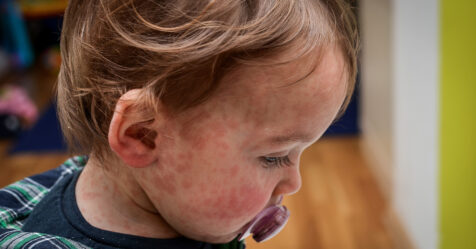Health Care Facilities Can Combat Foodborne Illnesses
The key is creating food safety plans that prevent outbreaks
From the start of the COVID-19 pandemic, facility managers in hospitals and other healthcare buildings worked to protect the health of patients and staff, despite major setbacks and shortages in their way. Now, these same individuals must focus their efforts on foodborne illnesses to continue to uphold the safety and health of the populace. Since the start of 2022, there have been 10 major foodborne illness outbreaks in the United States. Each year, an estimated 9 million people get sick, 56,000 are hospitalized, and 1,300 die of foodborne diseases caused by known pathogens.
“The most common foodborne illnesses in the U.S. are caused by norovirus, salmonella, and E. coli, with the most fatalities being associated with listeria and salmonella,” says Elaine Black, director of food safety and public health with Ecolab. “The most common foods associated with illness are those that may not go through a cooking step directly before consumption, such as leafy greens, other fruits and vegetables, and items like sandwiches and deli salads. Chicken and processed chicken products are commonly associated with salmonella. As with all other areas of the hospital, hand hygiene is an important component of infection prevention in healthcare food safety programs.” Facility managers must implement food service safety strategies, which are then analyzed every year and after every new supplier is added.
“Understanding the nature and risk of common foodborne pathogens is the first step in prevention of foodborne illness,” Black says. “Layering on knowledge of the common risk factors associated with sourcing, receiving, storage, preparation and serving of food builds the foundation for a strong food safety program. Building a great food safety culture demands commitment from all those involved in the processes of ensuring patients are nourished in a safe and healthy way. A healthy food safety culture is one where all employees understand the risks of making a patient ill and their part in preventing it and ensures that they will do what is right even when no one is watching.”
The main elements of a strong food safety plan include:
● Healthy relationships with suppliers
● Following “first in, first out” (FIFO) protocols
● Placing vegetables above meats and dairy in the freezer and fridge
● Paying attention to the danger zone when measuring temperatures
● Never using expired or damaged goods.
If you find yourself receiving items that are low quality from suppliers, it is in the best interest of the health care facilities management to find a new supplier rather than risk the health of everyone in the hospital and beyond. According to a BSI report, sick staff members can cause a major disruption to services, ultimately impacting patient experience. Severe cases of foodborne illnesses can lead to the closure of wards, causing the entity to lose money, limit the amount of care patients can receive, and put more strain on workers. If a health care facility experiences a foodborne illness outbreak, it might take several months for services to return to normal.
Foodborne illnesses don’t just affect the health and safety of the hospital, but also affect the workflow, functionality, and profitability of the facility likewise. In this way, a strong food safety plan can not only save lives but prevent losses and setbacks for managers as well.

